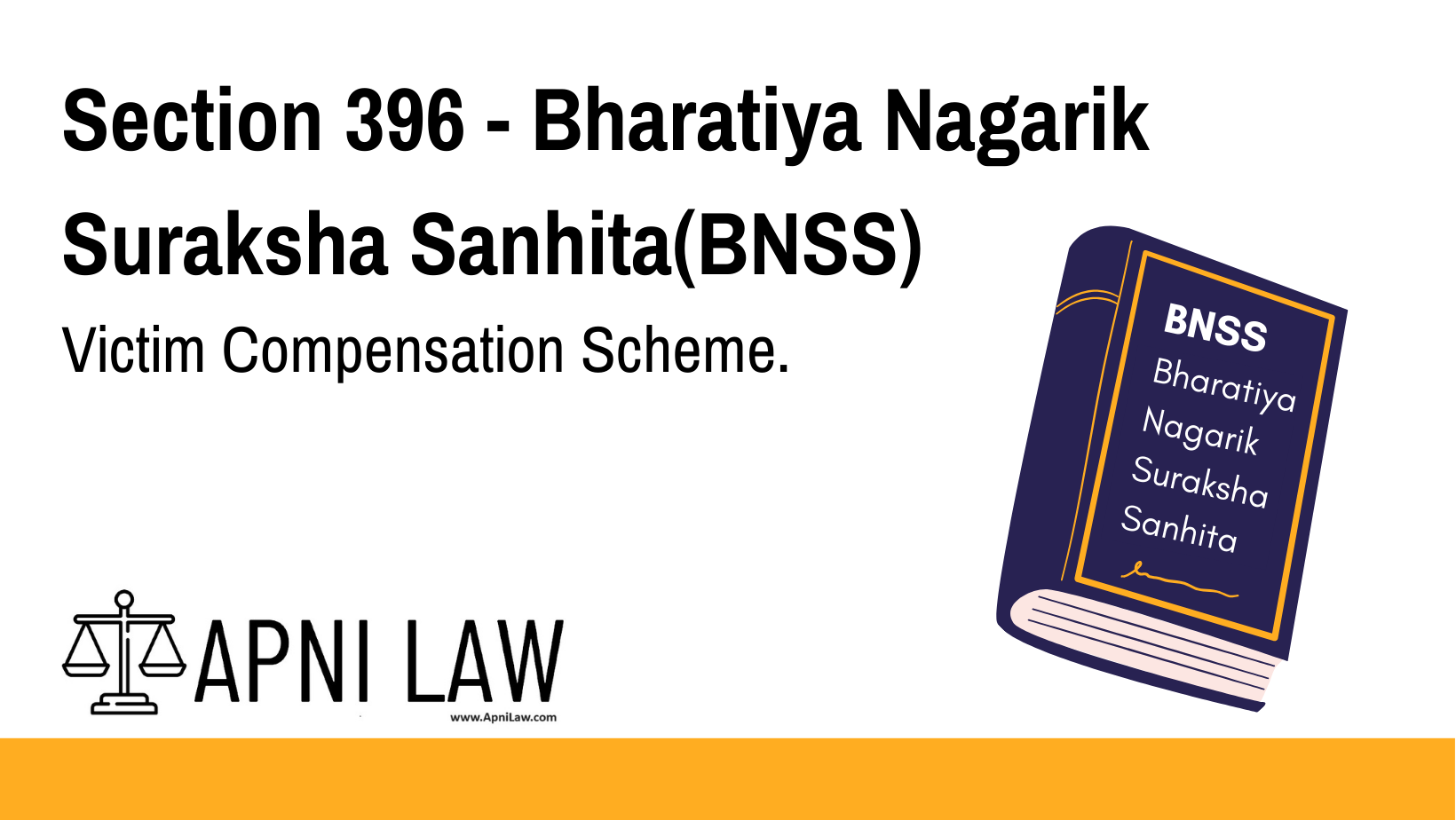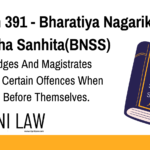Code: Section 396 BNSS
Compensation Scheme for Victims of Crime
(1) Every State Government in co-ordination with the Central Government shall
prepare a scheme for providing funds for the purpose of compensation to the victim or his
dependents who have suffered loss or injury as a result of the crime and who require
rehabilitation.
(2) Whenever a recommendation is made by the Court for compensation, the District
Legal Service Authority or the State Legal Service Authority, as the case may be, shall
decide the quantum of compensation to be awarded under the scheme referred to in
sub-section (1).
(3) If the trial Court, at the conclusion of the trial, is satisfied, that the compensation
awarded under section 395 is not adequate for such rehabilitation, or where the cases end in acquittal or discharge and the victim has to be rehabilitated, it may make recommendation
for compensation.
(4) Where the offender is not traced or identified, but the victim is identified, and
where no trial takes place, the victim or his dependents may make an application to the State
or the District Legal Services Authority for award of compensation.
(5) On receipt of such recommendations or on the application under sub-section (4),
the State or the District Legal Services Authority shall, after due enquiry award adequate
compensation by completing the enquiry within two months.
(6) The State or the District Legal Services Authority, as the case may be, to alleviate
the suffering of the victim, may order for immediate first-aid facility or medical benefits to be
made available free of cost on the certificate of the police officer not below the rank of the
officer in charge of the police station or a Magistrate of the area concerned, or any other
interim relief as the appropriate authority deems fit.
(7) The compensation payable by the State Government under this section shall be in
addition to the payment of fine to the victim under section 65, section 70 and
sub-section (1) of section 124 of the Bharatiya Nyaya Sanhita, 2023.
Summary and Explanation
Section 396 focuses on establishing a Victim Compensation Scheme, providing a legal framework for compensating victims or their dependents who have suffered harm due to crimes, especially in the context of rehabilitation.
Key Points:
-
Coordinated Effort Between Central and State Governments: The compensation scheme is developed jointly by the Central and State governments to provide funds for victim rehabilitation.
-
Court’s Role in Compensation Recommendations: When the Court recommends compensation, the Legal Services Authority (either State or District) decides on the amount based on the scheme.
-
Inadequate Compensation: If the compensation from Section 395 is insufficient or if the case ends in acquittal or discharge, the trial Court can suggest additional compensation for the victim.
-
Unidentified Offenders: If the offender is not found, but the victim is identifiable, they or their dependents can still apply for compensation.
-
Timeframe for Compensation: The relevant authorities must complete the enquiry and award compensation within two months of receiving the recommendation or application.
-
Immediate Medical Assistance: The Legal Services Authority can also order immediate medical aid or relief to the victim to ease their suffering.
-
Additional to Fines: Compensation under this section is separate and in addition to any fines imposed under the Bharatiya Nyaya Sanhita.
Illustration
Example 1: Inadequate Compensation for Rehabilitation
A victim of a violent crime receives compensation under Section 395 BNSS, but it is deemed insufficient for their rehabilitation. The trial Court recommends additional compensation under Section 396. After due enquiry, the District Legal Services Authority awards further compensation.
Example 2: Compensation in the Absence of a Trial
In a case where the offender is unidentified in a hit-and-run accident, the victim applies to the District Legal Services Authority for compensation. After completing the enquiry within two months, the authority awards compensation to the victim.
Example 3: Immediate Relief
A person severely injured in a crime requires urgent medical treatment. The Legal Services Authority, based on the recommendation of the police or Magistrate, provides immediate medical benefits free of cost to help alleviate the victim’s suffering while the compensation process is ongoing.
Conclusion
Section 396 of the Bharatiya Nagarik Suraksha Sanhita (BNSS) provides an important legal provision for ensuring that victims of crime receive necessary compensation for rehabilitation. It outlines a clear mechanism for the award of compensation, including a victim-friendly process for obtaining relief, even when the offender is not identified. The scheme is a step toward ensuring justice and rehabilitation for victims of crimes, promoting fairness and compassion in the legal system.
For legal assistance or more information about victim compensation, visit ApniLaw today! 🚀













